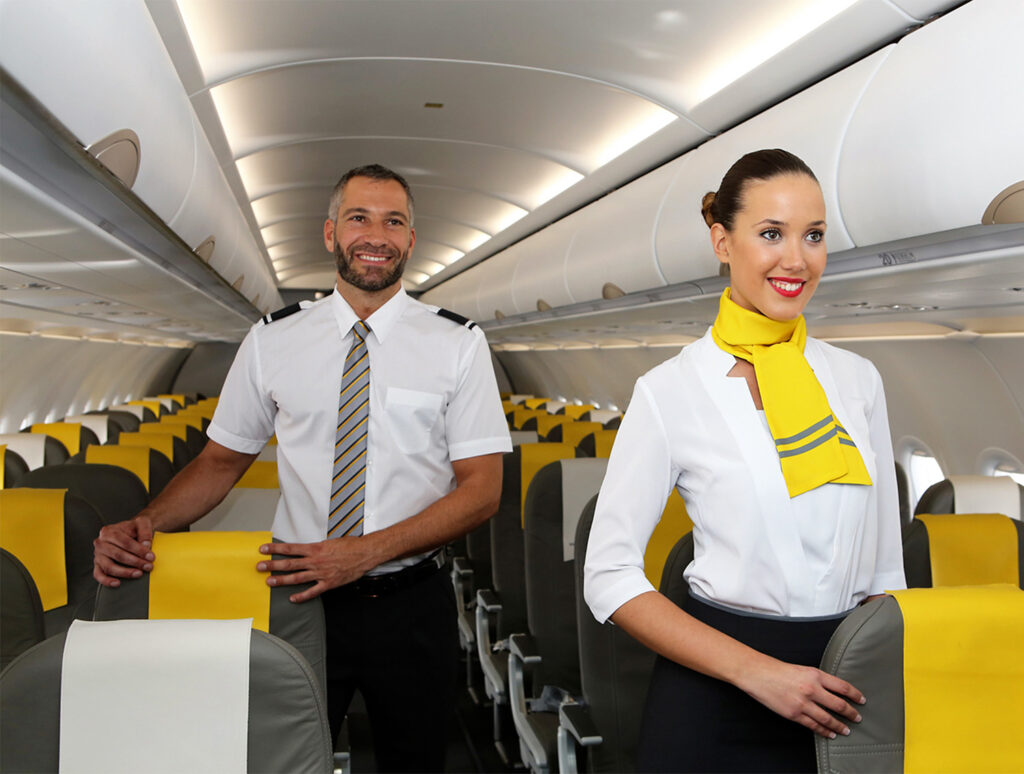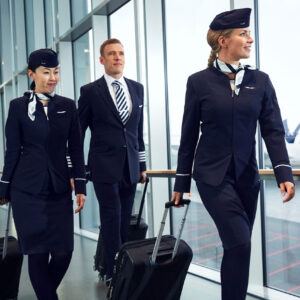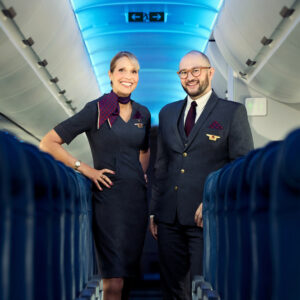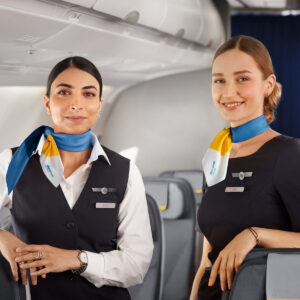Are you ready to embark on a journey where the skies are your playground and every day brings new adventures? Joining the ranks of cabin crew offers a unique blend of excitement, challenges, and opportunities to make a difference in the lives of passengers worldwide.
But before you take flight, let’s weigh the pros and cons of this dynamic career path, helping you make an informed decision about whether it’s the right fit for you.
The 10 Pros
1. Global Adventures:
As cabin crew, you’ll jet-set across the globe, exploring exotic destinations and experiencing diverse cultures firsthand. From the vibrant streets of Rio de Janeiro to the serene beaches of Bali, your passport becomes your ticket to endless adventures.
Related: The 15 Best Destinations to Visit as Cabin Crew
2. Cultural Immersion:
Interacting with passengers from different backgrounds enriches your cultural understanding and broadens your perspectives. Whether it’s learning a new language or indulging in local cuisines, every flight offers opportunities for cultural exchange and enrichment.
3. Varied Work Environment:
Say goodbye to the monotony of a traditional office job. Each flight presents unique challenges and experiences, keeping your workday exciting and dynamic. Whether you are cruising at 30,000 feet or exploring a new city during a layover, no two days are ever the same.
4. Opportunities for Growth:
The aviation industry offers ample opportunities for career advancement and professional development. From gaining specialised skills in safety and emergency procedures to moving into leadership roles, the sky’s the limit for ambitious cabin crew members.
Related: Elevating Your Career: Advancement Opportunities for Cabin Crew
5. Travel Benefits:
Enjoy discounted or complimentary travel perks, allowing you to explore new destinations during your downtime. Whether it’s weekend getaways or bucket-list adventures, being cabin crew opens doors to a world of travel opportunities.
Related: Discover the 11 Unbeatable Perks of Being Cabin Crew
6. Networking Opportunities:
Interacting with passengers from all walks of life can lead to valuable connections and networking opportunities. Whether it’s striking up a conversation with a business traveler or connecting with fellow crew members, each flight offers a chance to expand your professional network.
7. Developing Soft Skills:
The role of cabin crew hones essential soft skills such as communication, problem-solving, and conflict resolution. Dealing with diverse personalities and navigating challenging situations onboard helps you develop resilience and adaptability.
8. Team Camaraderie:
Building strong bonds with your fellow crew members fosters a sense of camaraderie and teamwork. Whether you are working together to ensure a smooth flight or supporting each other during challenging situations, the cabin crew becomes your second family.
9. Sense of Purpose:
Knowing that you play a crucial role in ensuring the safety and comfort of passengers provides a sense of fulfilment and purpose. Making a positive impact on people’s travel experiences leaves a lasting impression and brings meaning to your work.
10. Personal Growth:
Beyond professional development, being cabin crew offers opportunities for personal growth and self-discovery. From stepping out of your comfort zone to embracing new challenges, each flight journey contributes to your personal development and growth.
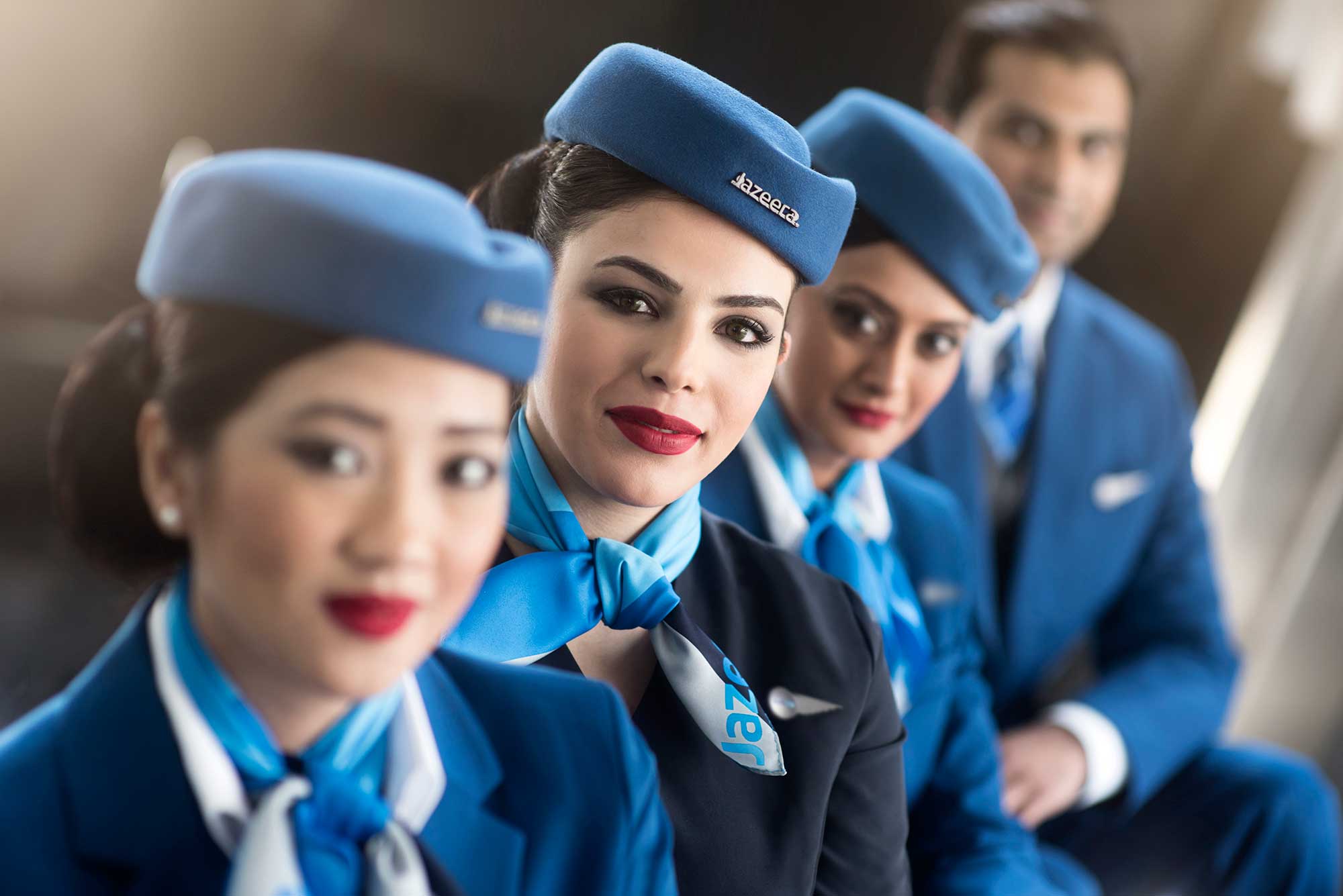
The 10 Cons
1. Erratic Schedule:
The irregular and unpredictable nature of cabin crew schedules can take a toll on work-life balance. Long hours, overnight layovers, and constant time zone changes can disrupt your sleep patterns and make it challenging to maintain a regular routine.
2. Physical Demands:
The physically demanding nature of the job, including prolonged standing, lifting heavy objects, and navigating cramped spaces, can lead to fatigue and discomfort. Cabin crew members must maintain a high level of physical fitness to meet the demands of the job.
3. Jet Lag and Fatigue:
Constantly crossing time zones and adjusting to different sleep schedules can lead to jet lag and fatigue. Cabin crew members often struggle to get adequate rest and may experience sleep disturbances and exhaustion as a result.
Related: Cabin Crew’s 5 Secrets to Defeating Jet Lag
4. Work-Life Balance:
Balancing work commitments with personal life can be challenging for cabin crew members, especially during peak travel seasons or busy flight schedules. Missing holidays, family gatherings, and important events due to work commitments can strain personal relationships.
5. Health Risks:
The nature of air travel exposes cabin crew members to various health risks, including exposure to germs and pathogens, dehydration, and altitude-related health issues. Maintaining good hygiene practices and prioritising self-care is essential to mitigate these risks.
6. Customer Service Challenges:
Dealing with demanding or unruly passengers can be emotionally taxing and stressful. Cabin crew members must remain calm and composed in challenging situations while addressing passenger concerns and ensuring the safety and security of everyone onboard.
7. Isolation and Loneliness:
Spending extended periods away from home and loved ones can lead to feelings of isolation and loneliness. Cabin crew members may struggle with homesickness and social isolation, especially during long layovers in unfamiliar cities.
8. Emotional Toll:
Witnessing distressing situations such as medical emergencies or disruptive behaviour onboard can take an emotional toll on cabin crew members. Coping with the emotional challenges of the job and providing support to passengers in distress can be emotionally draining.
9. Limited Career Control:
While the aviation industry offers opportunities for career advancement, cabin crew members may have limited control over their career trajectory. Factors such as seniority, airline policies, and industry trends can impact career progression and opportunities for growth.
10. Uncertainty and Instability:
The aviation industry is susceptible to external factors such as economic downturns, natural disasters, and global events, which can lead to job insecurity and uncertainty. Cabin crew members may face layoffs, furloughs, or route cancellations during challenging times.
Conclusion
Joining the ranks of cabin crew offers a blend of excitement, challenges, and opportunities for personal and professional growth. While the job comes with its share of pros and cons, the rewards of exploring the world, making meaningful connections, and fulfilling a vital role in air travel can outweigh the challenges. Subscribe to our newsletter today for more insights, tips, and exclusive opportunities to embark on your journey as cabin crew.
Frequently Asked Questions
Got burning questions? We’ve got answers!
What are the advantages of pursuing a career as cabin crew?
The pros of being cabin crew include opportunities for global adventures, cultural immersion, varied work environments, career growth, travel benefits, networking opportunities, soft skill development, team camaraderie, sense of purpose, and personal growth.
What are some potential drawbacks of working as cabin crew?
Cons of the cabin crew career path may include erratic schedules, physical demands, jet lag and fatigue, work-life balance challenges, health risks, customer service challenges, isolation and loneliness, emotional toll, limited career control, and uncertainty and instability in the aviation industry.
How does the cabin crew schedule affect work-life balance?
Cabin crew schedules can be irregular and unpredictable, often including long hours, overnight layovers, and constant time zone changes. This can disrupt sleep patterns and make it challenging to maintain a regular routine, impacting work-life balance.
What are some health risks associated with being cabin crew?
Health risks may include exposure to germs and pathogens, dehydration, altitude-related health issues, and physical strain from the demands of the job. Cabin crew members must prioritize self-care and hygiene practices to mitigate these risks.
How do cabin crew members cope with emotional challenges on the job?
Coping with emotional challenges such as witnessing distressing situations onboard or dealing with unruly passengers can be difficult. Cabin crew members rely on training, support from colleagues, and self-care strategies to manage emotional tolls effectively.
What factors contribute to job insecurity for cabin crew members?
Job insecurity may stem from external factors such as economic downturns, natural disasters, and global events that impact the aviation industry. Additionally, factors like seniority, airline policies, and industry trends can influence career progression and stability.
How can cabin crew mitigate the challenges of the job?
Cabin crew can mitigate challenges by prioritizing self-care, maintaining good physical and mental health, fostering strong support networks, and seeking opportunities for personal and professional development. Effective time management and communication skills also play a crucial role in managing job demands.
What are the long-term career prospects for cabin crew members?
While the aviation industry offers opportunities for career advancement, long-term prospects may vary based on factors such as seniority, industry trends, and individual career goals. Cabin crew members can explore avenues for growth within airlines, pursue leadership roles, or transition to related fields within the aviation industry.


